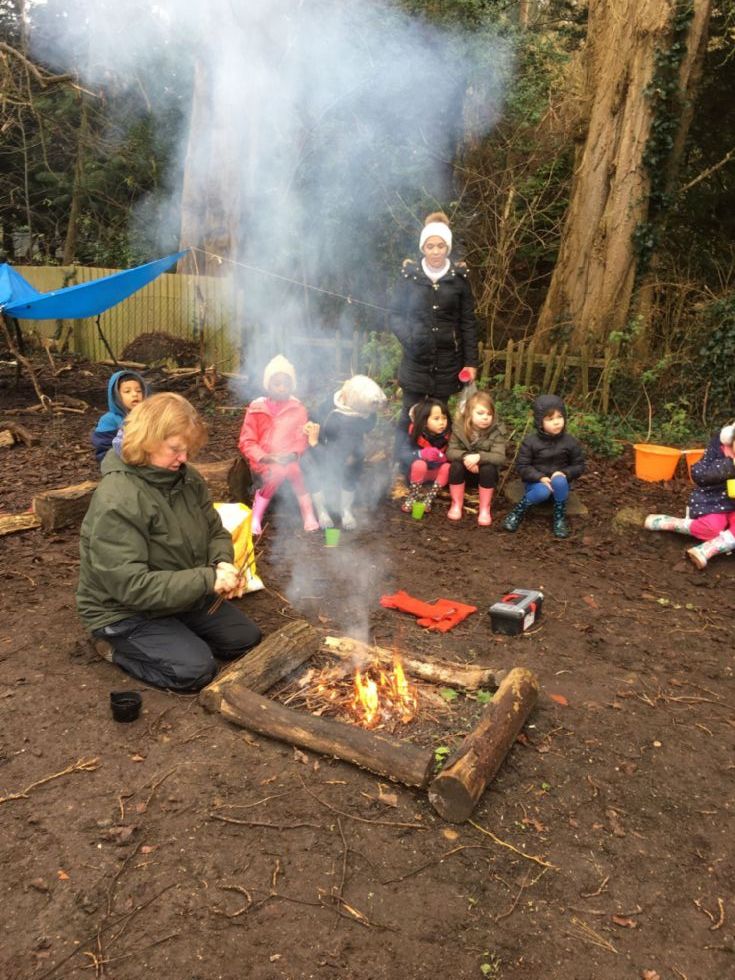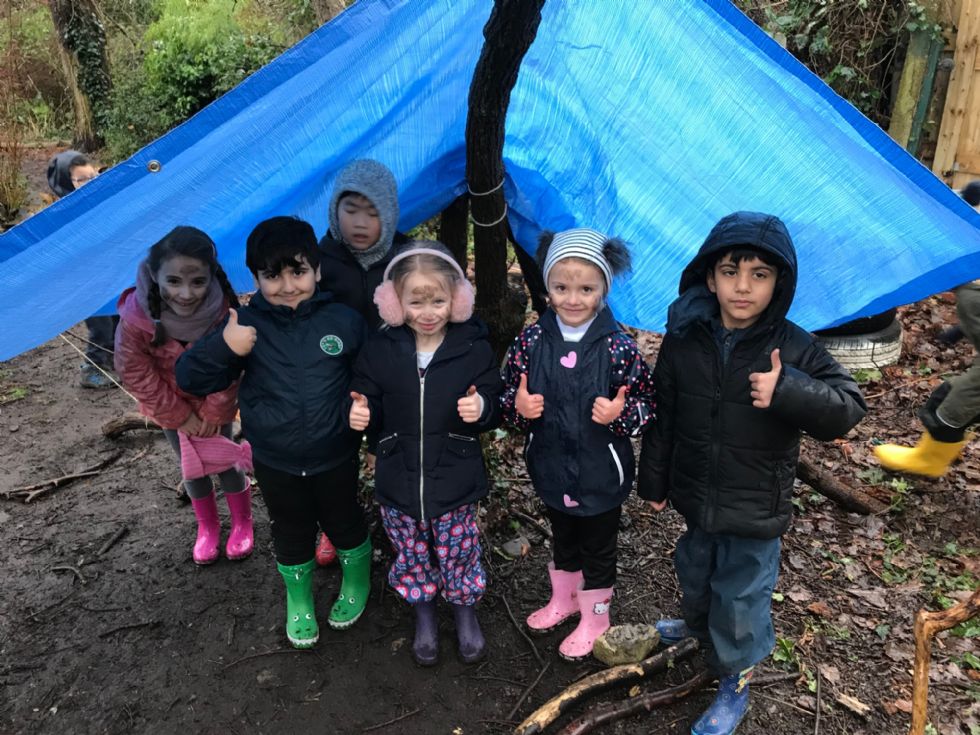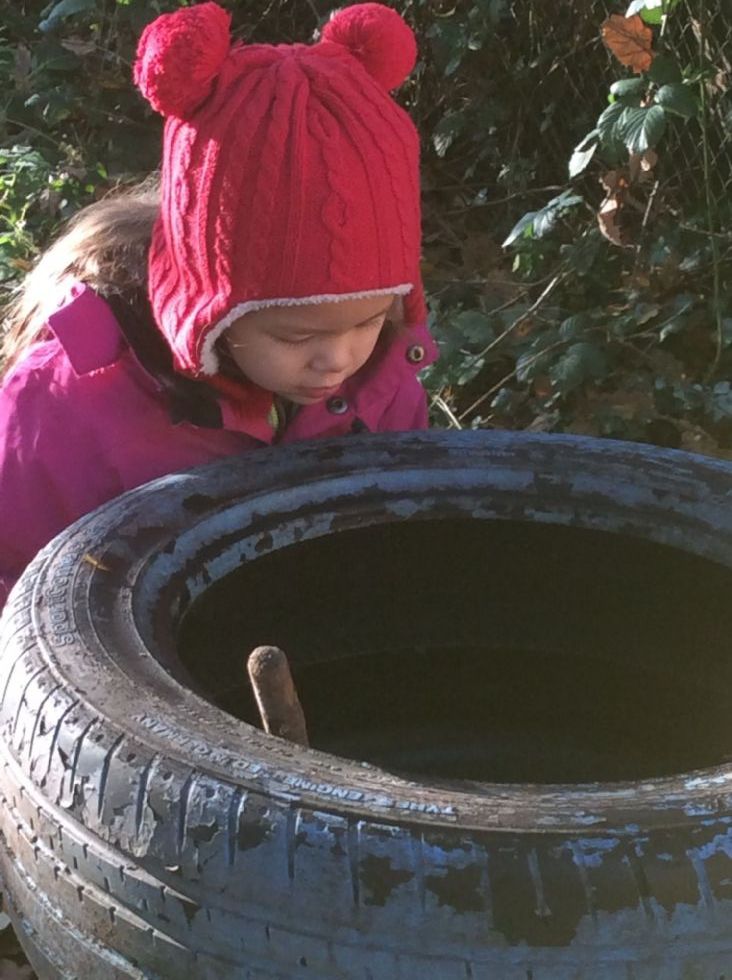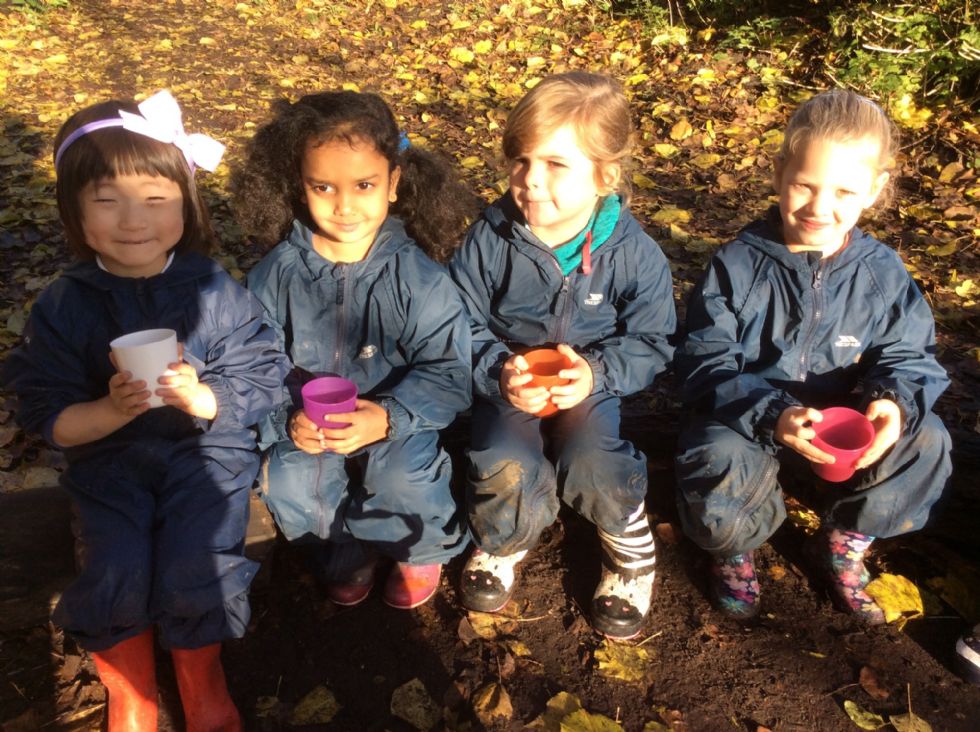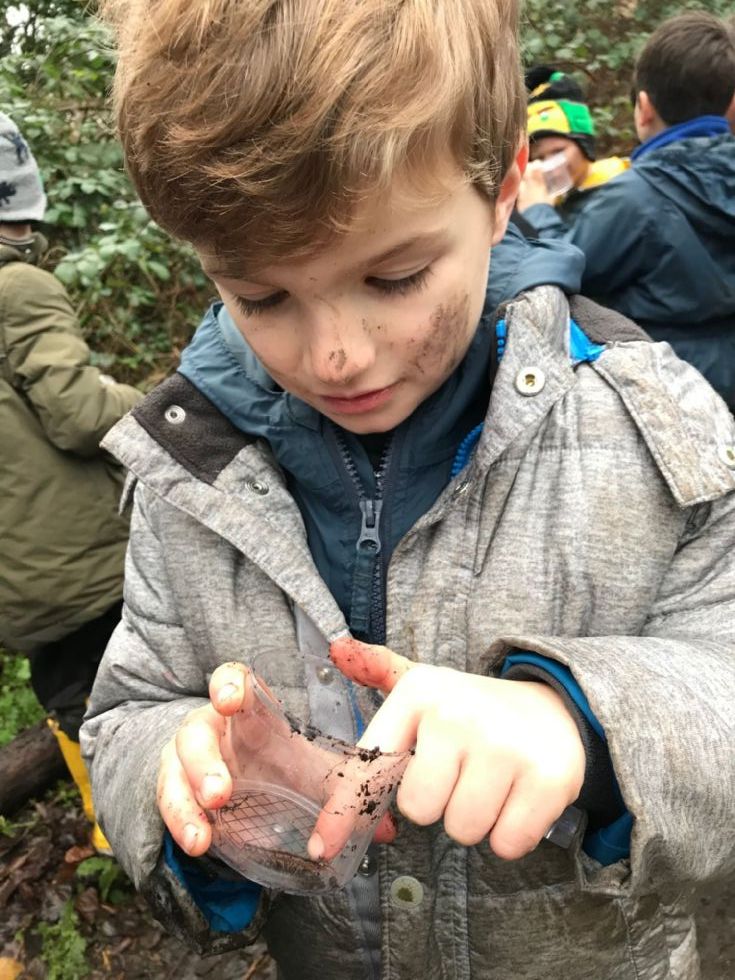Forest School
At Coombe Hill Infants' our children enjoy weekly sessions with our forest school teacher, Caroline Young.
Contact with the outdoors is often limited for many children in modern society, and the vital experience of using the outdoors and being comfortable in nature is something we value at Coombe Hill Infants'
Forest school allows children regular opportunities to;
- achieve
- develop their confidence and self-esteem
- develop their physical skills and Gross motor
- be challenged
- develop their innate curiosity and motivation to learn
- explore, using multiple senses
- develop a responsible attitude
all through hands on and child initiated learning.
Forest School Kit List
Children will need to come to school dressed in named clothing appropriate for working outdoors:
- Wellies with thick socks (or two pairs) or old trainers
- An old pair of long trousers that can get dirty
- A warm long sleeved top and jumper that can get dirty
- Extra warm layers if the weather is very cold
- Waterproof trousers and coat (We have enough puddle suits to lend half the class)
- Hat, scarf and gloves, depending on the weather
Forest School sessions will take place in all weathers unless the safety of the children is in question due to high winds or storms, so appropriate clothing must be worn.
‘There is no such thing as bad weather, just bad clothing’
Children will need to bring their normal uniform, including shoes, in a named bag to change into after the session, if necessary.
Our Grounds and Habitats:
· Large sports field
· Adventure Playground
· Outdoor Library
· Log Cabin & garden (mud kitchen, digging area)
· Willow den
· Climbing wall
· Story-telling throne and circle
· Bug Hotels
· Pond
· Forest School area with stag beetles, badgers and foxes
· Raised beds for growing potatoes, beans, strawberries etc
Oracy in all subjects
Our curriculum design allows for as many speaking opportunities as possible as our teachers understand that speaking and listening are at the heart of language. Not only are they the foundations for reading and writing, they are also essential skills for thinking and communication. Our teachers are role models for good spoken English, using ambitious vocabulary and correct grammar. Children are encouraged to read aloud, discuss ideas with their peers and teachers, engage with and learn new vocabulary to extend their spoken and receptive vocabulary.
Useful Links

